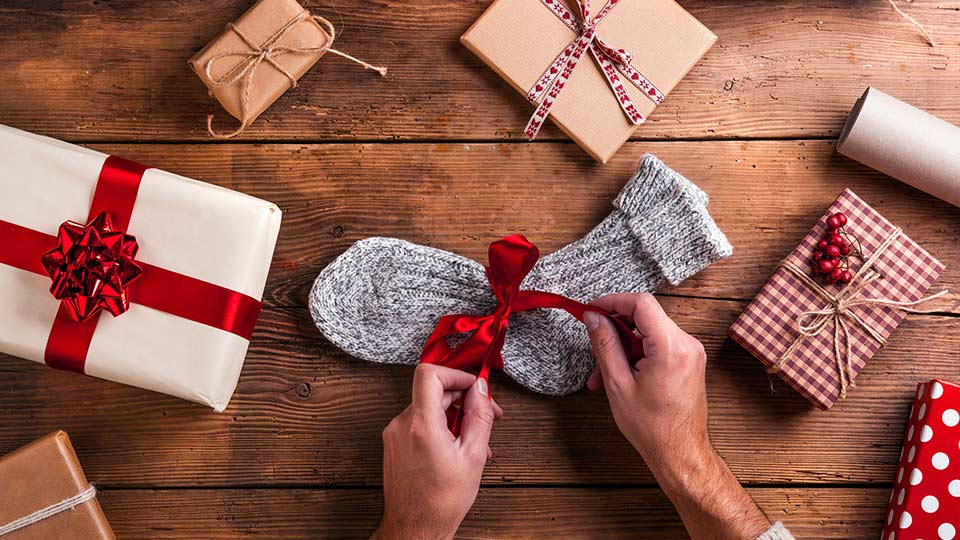Maybe you’ll pick up a scarf for Grandma, a knitted jumper for Uncle Jim and socks for everyone else – because who doesn’t love receiving socks?!
But have you ever considered how damaging generic and seemingly thoughtless fashion items can be to the environment?
According to the Waste and Resources Action Programme (WRAP), around £140m worth of clothing goes into landfill each year and clothing has the fourth largest environmental impact after housing, transport and food.
Dr Kerri Akiwowo, a Lecturer in Textiles at Loughborough University, shares her tips for giving more environmentally-friendly clothing gifts this Christmas and reveals the materials festive shoppers should avoid purchasing.

As a designer, maker, researcher, educator and mother, I have, in more recent years, felt an increased sense of environmental responsibility towards the work I produce and the things I buy, writes Dr Akiwowo.
Through textile design research, I have explored ways to reuse fabrics and fibres to create new products, exploit the properties of environmentally-friendly materials and investigate the benefits of low-energy laser-dyeing techniques.
As my awareness and understanding of the negative impact of our purchasing habits, material choices and consumer behaviours have developed, so too have my thoughts, attitudes and actions.
On a consumer level, we each contribute to the lifecycle of our clothes. We are therefore empowered to make environmentally-driven choices about how we acquire, purchase, use and care for these items.
So, as Christmas approaches, it’s important to consider alternative sustainable ways to gift or buy clothing rather than opting for throw-away, single-use, materially-damaging and mass-produced items.
Keep the ‘second-hand’ economy thriving
Buy second-hand rather than new this Christmas. Shift the stigma and celebrate ‘pre-loved’ items.
Take the time to seek out quality and nearly new clothes, accessories and homewares. In turn, have a timely clear-out and donate your unwanted items in time for any pre-Christmas shoppers.
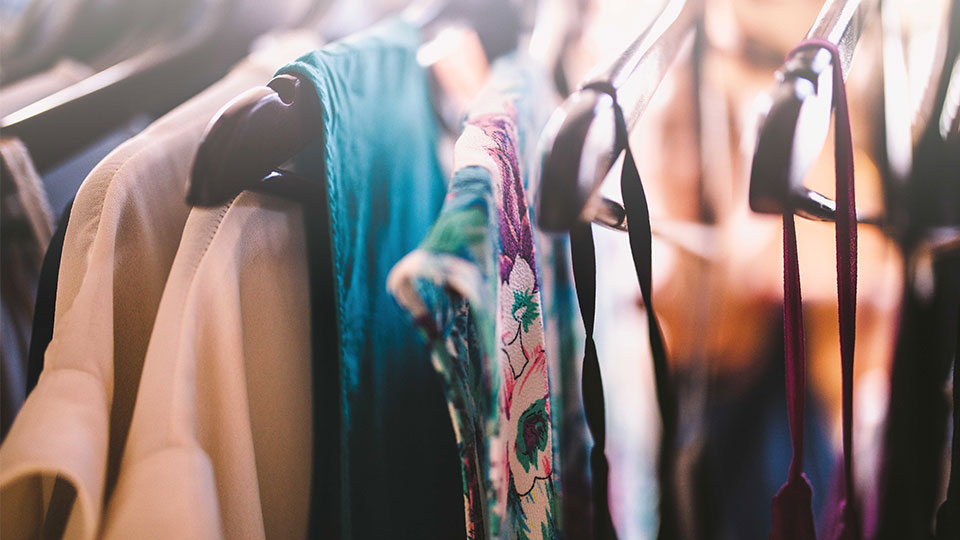
Buy less and customise an existing possession for a loved one
Preserve or update cherished items. Give them a new lease of life.
Why not sew a secret message in a pocket or sleeve? Mend a hole or rip? Decorate a boring cushion? Personalise a pair of curtains?
Prioritise handmade gifts over mass manufactured items
Instead, support local makers, craftspeople, traditional and contemporary textile practitioners.
Visit Christmas markets and fairs for one-off purchases and interact with the makers within communities’ first-hand.
Look out for: quilt-makers, knitters, crochet-enthusiasts, print-makers, embroiderers, textile toys and keepsakes.
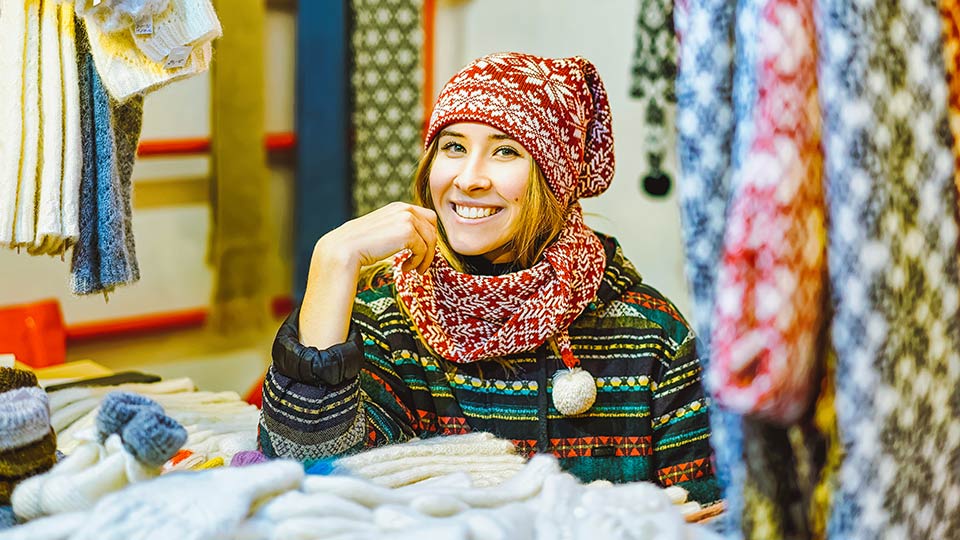
Purchase more environmentally-friendly materials
What to avoid
- Cotton: is the most environmentally demanding crop and can cause significant health complications in humans due the harmful pesticides and fertilisers used in agriculture
- Leather: is not sustainable because it comes from an animal and requires harsh processing methods and toxic tanning substances
- Polyester: is synthetic so takes hundreds of years to decompose and although it is recyclable, it requires another chemical process to do so
- Acrylic: is synthetic, cannot biodegrade, isn’t recyclable, requires toxic chemicals and a lot of energy to produce
What to opt for
- Hemp: natural, plant-based and most versatile – it can be eaten, used in beauty cosmetics, used to build architectural structures as well as making clothes and other textile products
- Linen: natural, plant-based, made from flax
- Bamboo: natural, plant-based, made from bast fibre
- Organic cotton: is less damaging and has better eco credentials than conventional cotton but is still resource heavy in terms of water usage which is problematic
- Lyocell: a cotton alternative, man-made natural fibre, made with wood pulp from sustainable tree farms
- Plant-based leather: such as mushroom and pineapple leaf alternatives
- Recycled polyester known as ‘rPET’: made from post-consumer recycled plastic

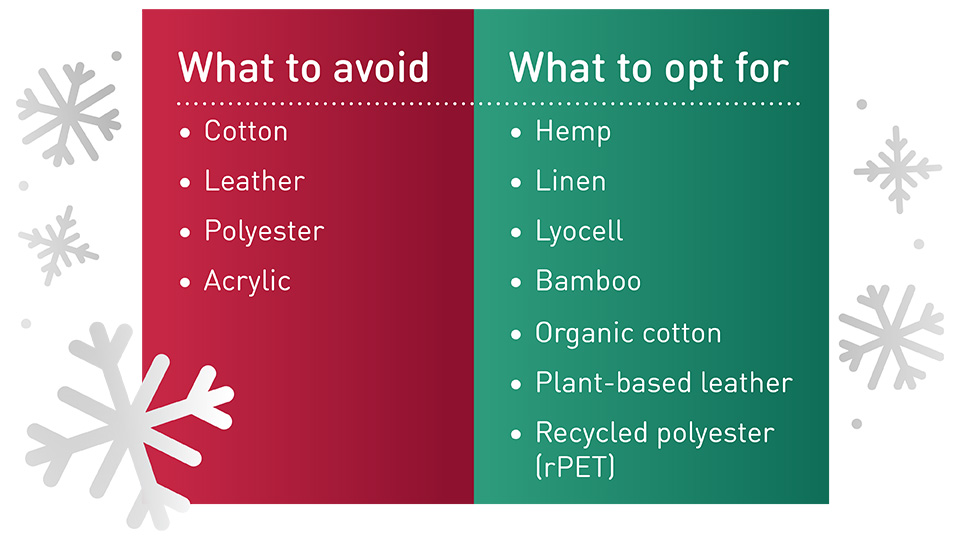
Avoid complex garments
Complex garments typically utilise a mix of man-made and synthetic textiles and materials in their design and construction.
They pose a huge environmental problem because they are difficult to break down and separate for recycling and will not fully decompose if re-introduced into the ecosystem.
Instead:
- Look out for mono fibre garments made using a single fibre or materials type throughout
- Seek clothes that have been created using materials from the same fibre classification i.e. cellulose (from plants), protein (from animals), 100% polyester etc.
- Limit your consumption of garments that are fashioned using a combination of textiles, metals and plastics such as zips, studs, poppers, buttons, stones, furs, synthetic and natural fibres.
Alternative clothes such as this can be identified as ‘simple’ in terms of their materiality and pose less threat to the environment due to increased recyclability or biodegradable credentials.
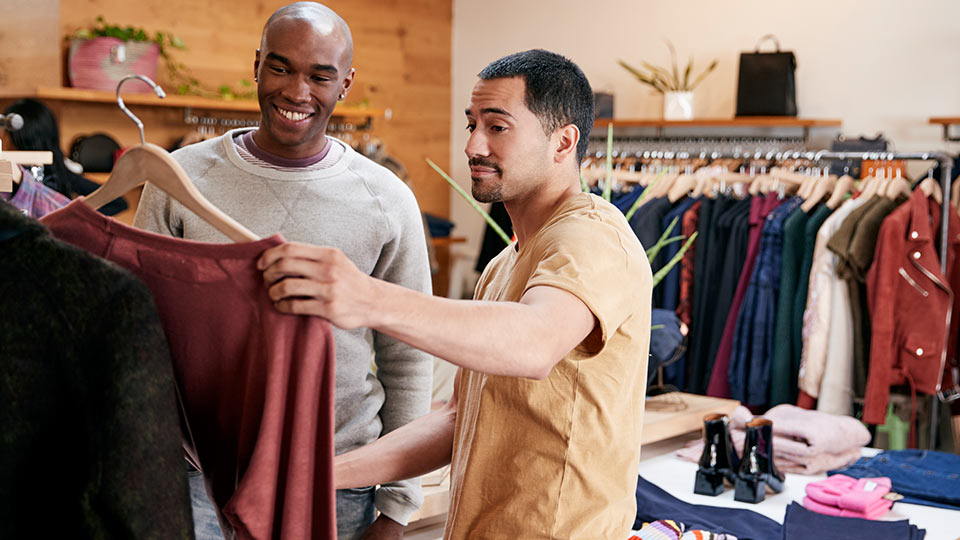
Start the New Year right and join the ‘slow clothing’ movement
Clothing is purchased all year round so why not make it your New Year’s resolution to be more aware of how much you’re buying and what it’s made of.
Make more informed and responsible choices about how you acquire and preserve your clothes.
Say no to ‘fast fashion’ linked to high volumes and low prices, cheap imitations, production and retail speed, throw-away attitudes, poorly made clothes, low-grade materials, questionable labour, waste and pollution.
Make it your New Year’s resolution to:
- Buy well once by focusing on quality that lasts rather than the price which fades
- Choose clothes and accessories made from natural fibres and limit your consumption of synthetic materials which are more difficult to recycle and more complex to degrade
- Wash garments less and use cool water to preserve energy and resources and limit the effects of global warming
- Value home sewing, DIY and handmaking skills to refashion existing clothes and reduce the number of used textiles going to landfill
- Get involved in the ‘sharing economy’ and ‘collaborative consumption’. There are a number of apps that allow you to access and rent fashion rather than own it, minimising quantity and maximising the usage of individual worn items.
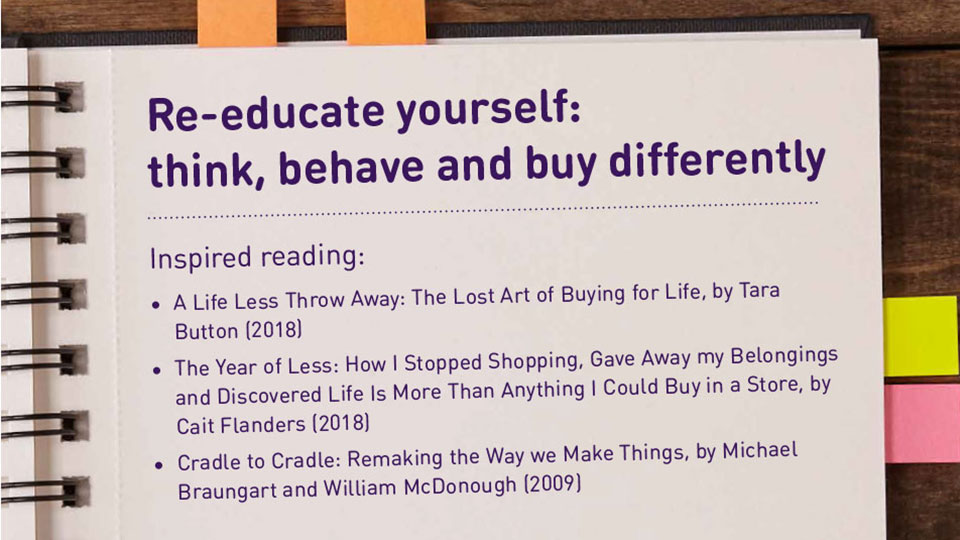
The importance of ‘doing your part for the environment’ is now everybody’s issue and should be a concern to us all.
Ultimately on an individual level, we need to buy less, create more and re-engineer supply-and-demand consumer habits.
For more information on the University's 2018 Christmas campaign, click here.
The University’s Sustainability team is also hosting a public discussion on the ethics of gift-giving. Visited the dedicated event page for details.
